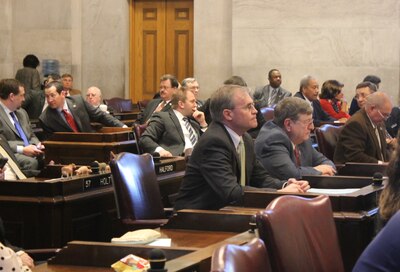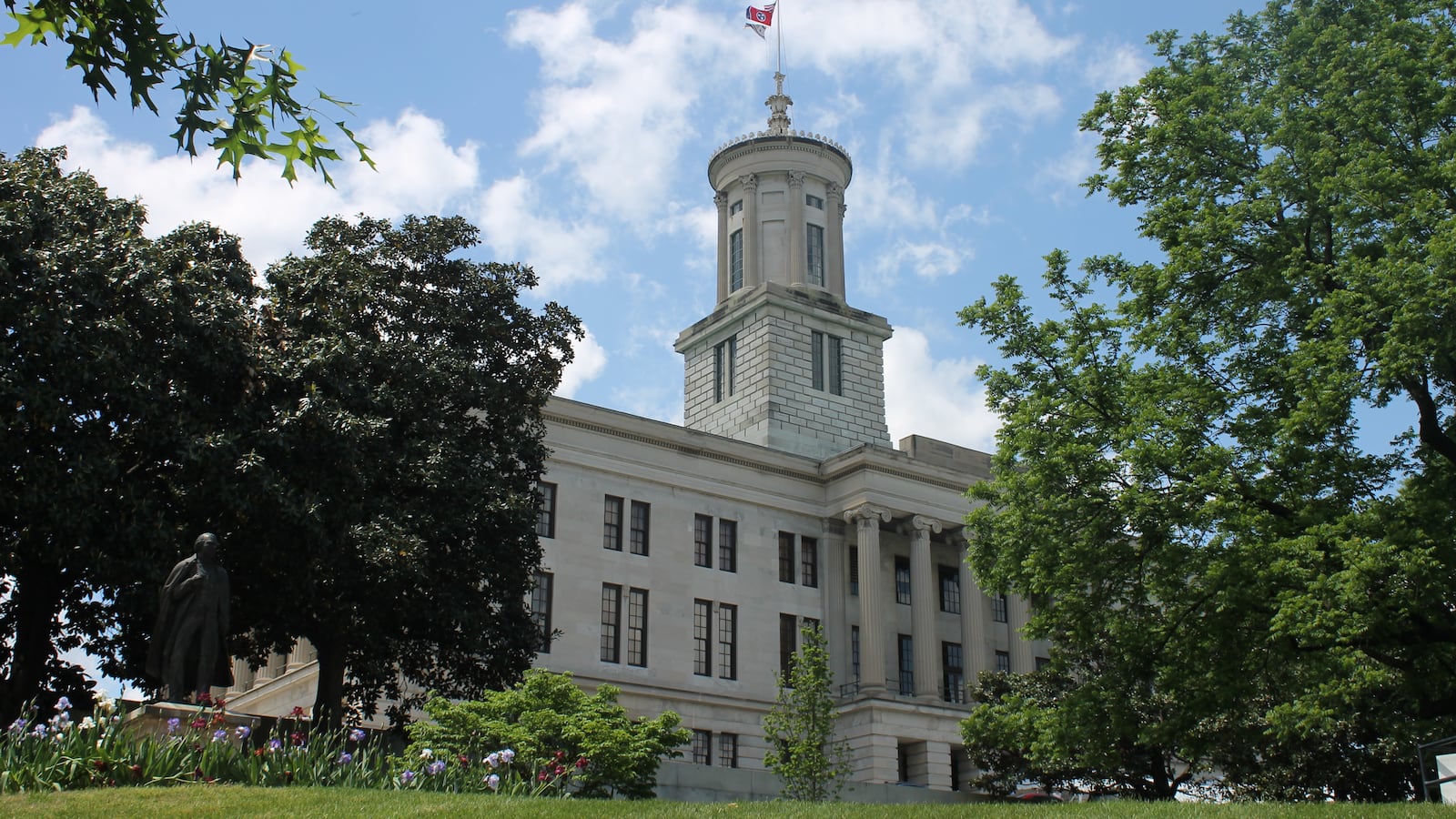The campaign to introduce school vouchers to Tennessee has come up short for so many years that supporters are looking closely at another voucher-like approach to give families more control over public funding for their children’s education.
Education savings accounts have gained traction in some other states and are viewed as an attractive alternative for Tennessee in the debate about parental choice.
And with the inauguration soon of a new governor who promised to give parents more education options for their kids, this approach would fit the bill — and even offer a longer menu of services than traditional vouchers would.
“I would like to help lead the charge,” said Rep. Bill Dunn, a Knoxville Republican and fierce voucher proponent, who this week was elected speaker pro tempore of Tennessee’s House of Representatives.
“Education freedom, if it’s done correctly, gives students opportunities to do better, and public schools rise to the occasion through competition. Everybody wins,” Dunn added.
Not so fast, say public school officials who view any kind of voucher program as a major step toward privatizing education.
“Outside interests pushing ‘school choice’ options have learned that when ideas like vouchers become toxic to the public, they can be repackaged as education savings accounts, which might be more palatable to lawmakers,” said Amy Frogge, a Nashville school board member who opposes vouchers.
Both approaches raise the same concerns, said Frogge, citing a drain of funding from public schools, increased student segregation, and a lack of accountability for students whose families choose that route.
Education savings accounts, or ESAs, allow parents to withdraw their children from public schools and receive a deposit of public funds into government-authorized accounts. The money could be used to cover everything from private school tuition and tutoring to homeschool materials and online learning programs.
A voucher is taxpayer money that’s restricted to paying for private school tuition and fees for eligible students.
For years, Tennessee lawmakers have tried to start a voucher program and came close in 2016 with legislation sponsored by Dunn. But an unlikely alliance of Democrats and rural Republicans have foiled every attempt.

Dunn, who has since risen to the House’s No. 2 leadership position, thinks education savings accounts would be more appealing to rural legislators who see little local benefit in opening the door to vouchers in Tennessee.
“A voucher is dependent upon having a private school being available. But there’s more flexibility with an ESA and you could shop for a lot more educational services for your child no matter where you live,” he said, adding that a better educated workforce could lure more jobs to rural Tennessee.
A 2018 poll by the pro-voucher American Federation for Children found that voters are more open to voucher-like programs like education savings accounts and “tax credit scholarships” than vouchers, even though all three would siphon off funding from public schools. That’s one reason that backers are avoiding the V-word and re-branding how they talk about “school choice.”
Leaders of the American Federation for Children say they wouldn’t be surprised to see legislation filed this year in Tennessee, whether for vouchers or education savings accounts.
“We’re supportive of both,” said state director Shaka Mitchell. “But because an ESA allows students’ education to be far more customized, I think it’s useful in some ways that a voucher isn’t.”
Do school vouchers work? Here’s what the research says
“School choice” advocates will have two powerful new allies in the governor’s office when Bill Lee is inaugurated on Jan. 19. The governor-elect has hired Tony Niknejad, former state director of the American Federation for Children, to be his policy director, while Brent Easley of TennesseeCAN, another pro-voucher group, is his legislative director.
But it’s uncertain whether Lee — a Williamson County businessman who won his first bid for office — will put his political muscle behind the divisive issue in his early months of governing, especially when he must develop his first proposed budget and a broader vision for his four-year administration.

“There may be a lot of talk about vouchers or education savings accounts, but I don’t think it’s the right climate yet,” said Rep. Mark White of Memphis, who this week was named chairman of the House Education Committee.
One reason, he said, is accountability for recipients of education savings accounts and the services they choose.
“We’ve worked so hard making sure the public schools are accountable with testing that if we just give a parent money to go to a private school of their choice or to choose other services and we don’t have any accountability, then I would be against it,” White said. “If we’re talking about taxpayer dollars and we’re holding one group accountable, then we’ve got to hold everybody accountable.”
Tennessee already has one program that’s similar to education savings accounts. The state launched launched Individualized Education Accounts for students with certain disabilities in 2017, allowing families to receive up to $6,000 annually to pay for private educational services. This year, 137 students from 38 districts are participating, with 70 percent attending a private school and the rest homeschooled, according to the state’s most recent data.
“When we debated that limited-choice program, people got up and said it would be the end of the world and would destroy public education — but it hasn’t,” said Dunn.
Others point out that, although the state planned for more participants in the program, no one expected families to rush out of public schools. Anyone opting to use the accounts must waive their federal right to receive a “free and appropriate” public education. For students with disabilities, that usually costs far beyond the $6,000 a year allocated to participants.
One bill filed in the legislature’s first week seeks to expand the program to make more students eligible. Rep. Jay Reedy, a Republican from Erin, wants students who are already in private or home schools to be able to participate. Currently, families can apply only if their student is enrolled in public schools.

